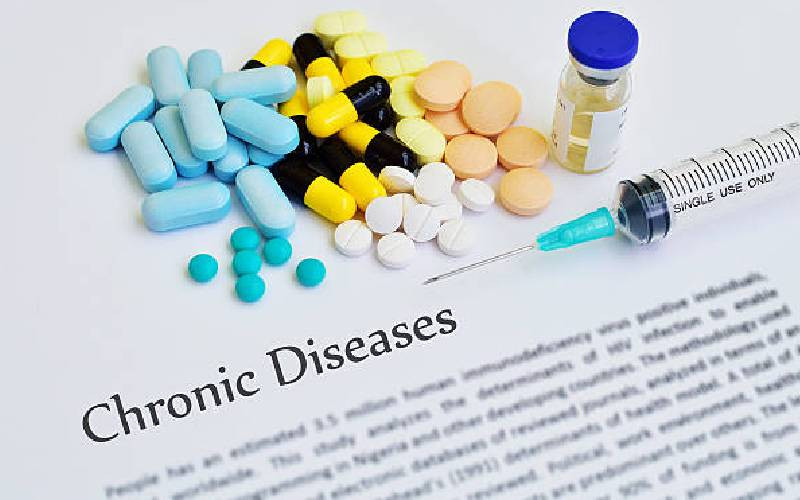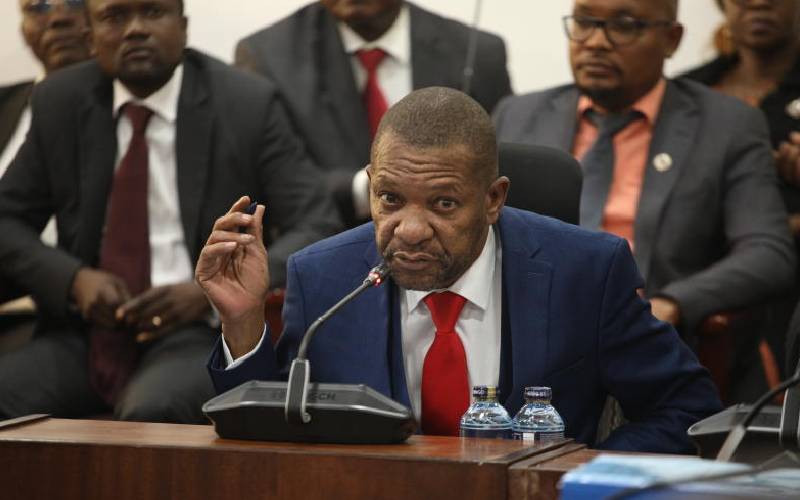
The National Syndemic Diseases Control Council (NCGSS) has launched a five-year strategic plan that seeks to reduce syndemic diseases, including HIV/AIDS, TB, and Malaria, by 95 percent.
Under the Kenya Syndemic Diseases Integrated Strategic Framework 2025–2030, the council notes that this will lead to a 50 percent reduction in related mortality.
This came as the council noted that the country had made notable progress in disease surveillance and management despite persistent systemic challenges.
According to the framework, the fight against syndemic diseases has faced various challenges, including operational fragmentation and a heavy reliance on external donor funding.
“Other challenges include the rising threat of antimicrobial resistance and limited institutional capacity for comprehensive disease control,” reads the framework in part.
The Council noted that the integrated Strategic Framework was designed to address these vulnerabilities by promoting a cohesive, multi-sectoral framework for disease prevention and control.
Other measures include enhancing domestic resource mobilization to reduce donor dependency and supporting long-term fiscal sustainability.
“The strategic framework seeks a 95 percent reduction in the incidence of syndemic diseases and a 50 percent reduction in related mortality.”
- Kenya's healthcare inequality persists as self-care, local production gain momentum
- AI has the potential to streamline every aspect of healthcare
Keep Reading
“Other targets include a reduction in stigma and human rights violations to below 10 percent and a 100 percent domestic financing of the national syndemic response,” reads the report.
The framework further focuses on integrating health programs such as HIV, TB, malaria, and non-communicable diseases (NCDs) into cohesive service delivery models to address the growing burden of co-morbidities.
Speaking earlier, Joshua Gitonga, a Deputy Director with NCGSS said that the framework served as a cornerstone in the country’s transition toward a self-reliant, resilient, and responsive health system, capable of sustainably addressing HIV and other syndemic diseases.
On funding, he said that a Rapid Results Initiative (RRI) assessed 5,245 facilities in the 47 counties following US government funding withdrawal, revealing systemic vulnerabilities.
The assessment revealed that funding withdrawal affected services delivery in over 40 percent of the facilities while it also led to workforce gaps in the majority of the counties.
Gitonga said that the council had identified various challenges that were affecting plans to reduce HIV infections in the country and they included poor health-seeking behavior.
Other challenges, according to the council were stigma, low supply of HIV test kits, inconsistent supply of prevention commodities like condoms, and inadequate human resources.
“Over 80 percent of counties relied on donor funding for HIV-TB care, and the withdrawal of USAid support had effects on this programme,” he said.
 The Standard Group Plc is a multi-media organization with investments in media
platforms spanning newspaper print
operations, television, radio broadcasting, digital and online services. The
Standard Group is recognized as a
leading multi-media house in Kenya with a key influence in matters of national
and international interest.
The Standard Group Plc is a multi-media organization with investments in media
platforms spanning newspaper print
operations, television, radio broadcasting, digital and online services. The
Standard Group is recognized as a
leading multi-media house in Kenya with a key influence in matters of national
and international interest.











